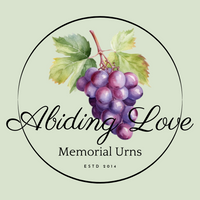
Cremation vs. Burial: Understanding Your Options
Cremation vs. Burial: Understanding Your Options
Introduction
When making end-of-life arrangements, one of the most significant decisions is choosing between cremation and burial. Each option has its own set of benefits, considerations, and implications. Understanding these can help you make an informed choice that best honors your loved one’s wishes and meets your family’s needs.
1. Cremation
What is Cremation? Cremation is a process in which the body is subjected to intense heat, reducing it to ashes and bone fragments. This method is often chosen for its simplicity and flexibility in terms of memorialization.
Benefits of Cremation
- Flexibility: Cremation allows for a range of memorialization options, including keeping the ashes in an urn, scattering them, or even turning them into memorial jewelry.
- Cost-Effective: Generally, cremation is less expensive than traditional burial due to lower costs for caskets and cemetery plots.
- Environmental Considerations: For those concerned about environmental impact, cremation can be a more sustainable option, especially with eco-friendly urns and processes.
Considerations for Cremation
- Cultural and Religious Beliefs: Some cultures and religions have specific beliefs regarding cremation. It's important to consider these when making a decision.
- Permanent Resting Place: Unlike burial, cremation requires decisions about where to keep or scatter the ashes.
2. Burial
What is Burial? Burial involves placing the body in a casket and interring it in the ground or a mausoleum. This method has been the traditional form of final disposition for centuries.
Benefits of Burial
- Traditional and Symbolic: Burial is often seen as a traditional and respectful way to lay a loved one to rest. It can provide a physical location for family members to visit and pay their respects.
- Cemetery Services: Many cemeteries offer ongoing maintenance and care for gravesites, providing a dedicated space for remembrance.
- Religious Traditions: For some, burial is a religious requirement or preference, aligning with traditional practices.
Considerations for Burial
- Cost: Burial can be more expensive due to costs associated with caskets, burial plots, and grave markers.
- Environmental Impact: Traditional burial can have a higher environmental impact, especially with embalming chemicals and non-biodegradable caskets.
3. Making Your Decision
Personal Preferences Consider the preferences of the deceased and their family. If possible, discuss these options with family members to ensure that the decision aligns with their wishes and values.
Costs and Logistics Evaluate the costs associated with both options and consider any logistical aspects, such as cemetery plots or cremation services.
Long-Term Considerations Think about how the choice will affect the family in the long term, including how they will memorialize and remember their loved one.
Conclusion
Choosing between cremation and burial involves understanding the benefits and considerations of each option. By evaluating personal preferences, costs, and long-term implications, you can make an informed decision that honors the deceased’s memory and meets the needs of your family.




Leave a comment